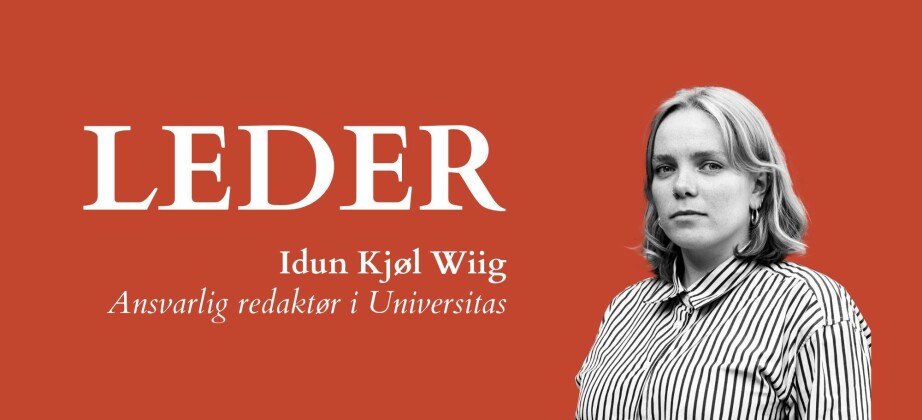The preacher or the practitioner?
The battle for the rectorship is being fought between a talkative physician and a theologian who wants to the university to do a u-turn.
One should not award points for style in Norway’s most important election in the field of higher education and research, but still: In the rectorship debates, professor of medicine Ole Petter Ottersen comes across as a revivalist preacher who in his body language, tone of voice and choice of words wants to fire up the masses with the predictable mantra «More money from the government». Next to him stands the more awkward theology professor Trygve Wyller, who begins new sentences in the middle of old ones, while he almost knocks over the rostrum and has technical difficulties with the microphone.
Comically, this is the picture that Ottersen draws with regards to the difference between himself and his opponent Wyller: Ottersen believes that he is a bigger supporter of increased financing from the government, and that he is more in favour of rectors and deans being elected than Wyller, even though these are two matters in which the candidates agree. Both want more funds, and both want to be elected.
What is more interesting, is what the candidates propose to do about existing challenges, irrespective of whether or not the Ministry of Education and Research decides to pay up: Ottersen wants to redistribute funds in order to strengthen research, while Wyller wants to redistribute funds in order to strengthen teaching. The candidates’ understandings of where UiO’s difficulties lie are different, especially in the matter of research versus teaching and elite versus breadth.
«Elite» is a favourite word in the Ottersen camp, and almost nothing is more important than quality in research, and prioritization of the best research. In comparison, supporters of Ottersen classify Wyller as a minister of mediocrity and banality. Wyller’s campaign team have adopted «breadth» as one of their three key slogans, and emphasize UiO’s particular responsibility to keep subjects alive in a reality in which a subject being closed down at UiO often leads to the subject not being studied in Norway any more.
Ottersen gets less and less clear the more concrete the subject matter becomes. His much-discussed «clarity» is dented every time the chair of a debate asks him to offer briefer answers to questions, or a journalist has to edit down his statements. Yet he still speaks in a way that makes it easy to agree with his answers, he eludes controversial subjects, and Ottersen’s team has been greatly helped by the national media through Aftenposten and Morgenbladet’s love affair with Inga Bostad, who has miraculously managed to play the role of being part of the problem (vice rector in the current rectorship) and part of the solution (Ottersen’s candidate for the pro-rectorship).
Yet despite all the points Ottersen scores for style, Wyller has one advantage: He has his ear to the ground. Large sections of UiO are unhappy with a day-to-day existence in which funds earmarked for the elite «steal» from the pot of money allotted to the whole university, and in which we are meant to do so well in certain fields that the university as a whole is forgotten. Students are also displeased with a quality of studies that is being leveled to the ground. Ottersen, on the other hand, managed to claim that the student issue that needed resolving most quickly was exposing students to research earlier on in the course of their studies.
Therefore, Wyller’s chances of winning lie in the fact that Ottesen often seems out of touch with large sections of UiO, and many votes among students, technical and administrative staff and academics in the humanities and social sciences are likely to go to Wyller. His chances of winning lie in the fact that he does not speak the narrow language of the elite, but instead speaks to the students and employees who make up the majority of the university.
































